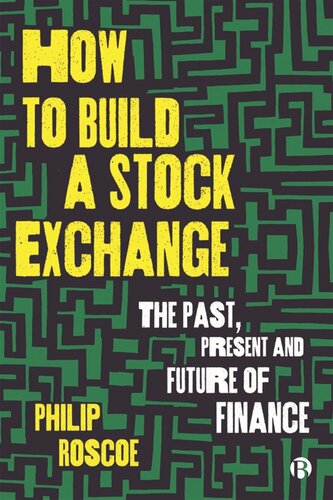

Most ebook files are in PDF format, so you can easily read them using various software such as Foxit Reader or directly on the Google Chrome browser.
Some ebook files are released by publishers in other formats such as .awz, .mobi, .epub, .fb2, etc. You may need to install specific software to read these formats on mobile/PC, such as Calibre.
Please read the tutorial at this link: https://ebookbell.com/faq
We offer FREE conversion to the popular formats you request; however, this may take some time. Therefore, right after payment, please email us, and we will try to provide the service as quickly as possible.
For some exceptional file formats or broken links (if any), please refrain from opening any disputes. Instead, email us first, and we will try to assist within a maximum of 6 hours.
EbookBell Team

5.0
60 reviewsWhy is finance so important? How do stock markets work and what do they really do? Most importantly, what might finance be and what could we expect from it? Exploring contemporary finance via the development of stock exchanges, markets and the links with states, Roscoe mingles historical and technical detail with humorous anecdotes and lively portraits of market participants. Deftly combining research and autobiographical vignettes, he offers a cautionary tale about the drive of financial markets towards expropriation, capture and exclusion. Positioning financial markets as central devices in the organisation of the global economy, he includes contemporary concerns over inequality, climate emergency and (de)colonialism and concludes by wondering, in the market’s own angst-filled voice, what the future for finance might be, and how we might get there.